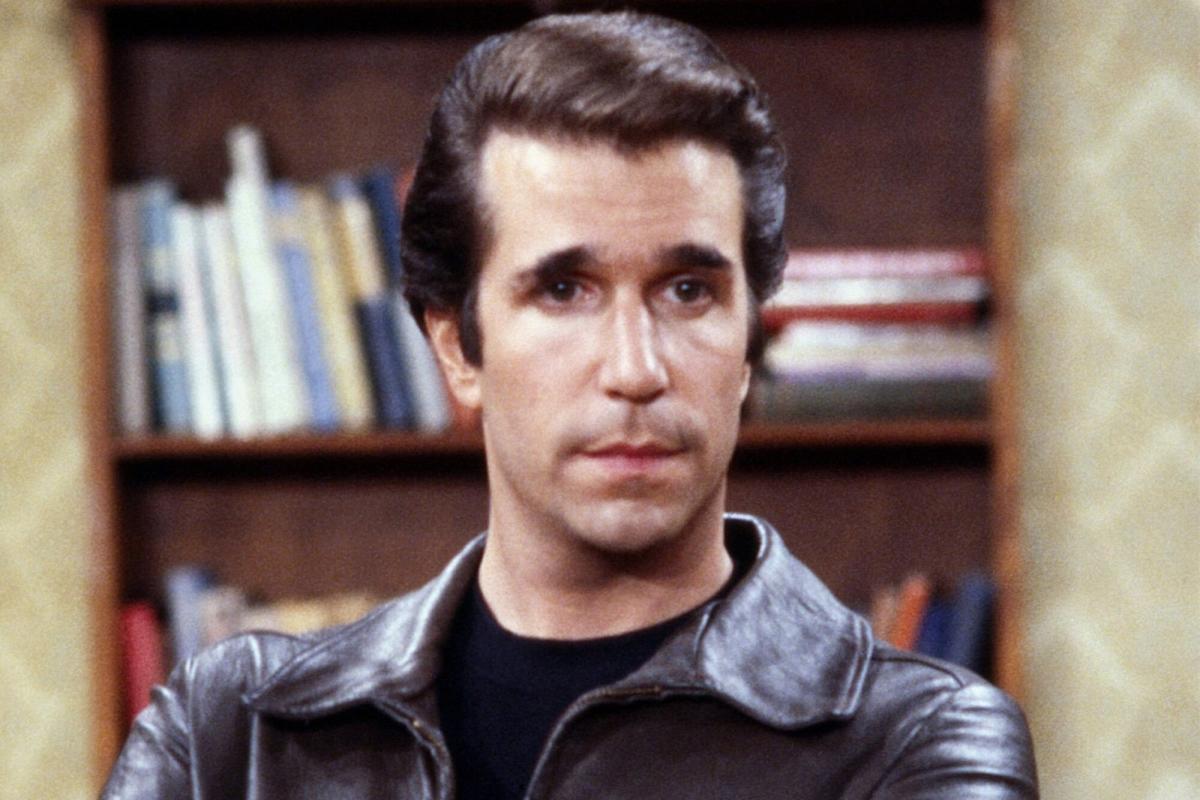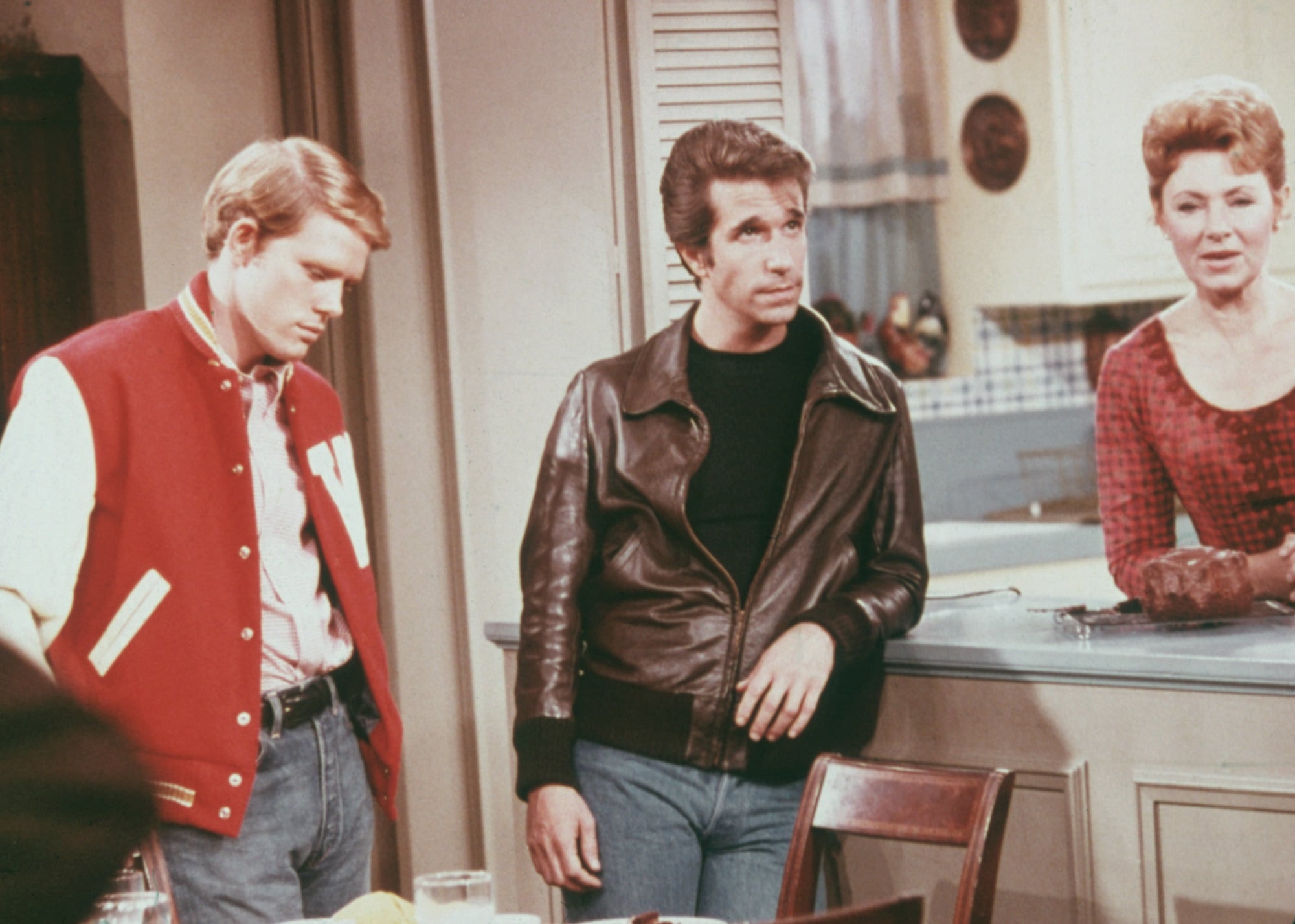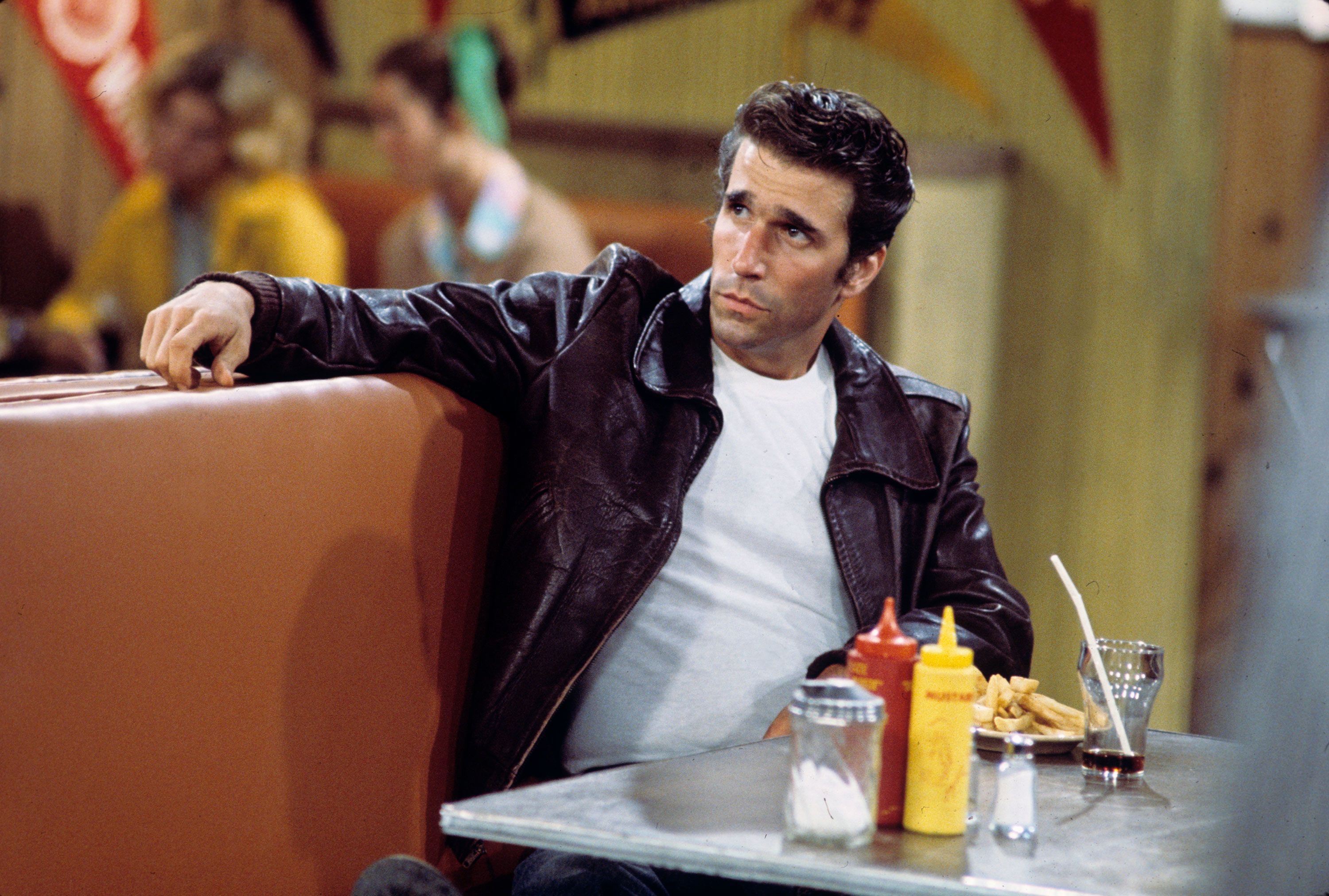Discover The Exact Payout: Henry Winkler's Salary From "Happy Days"
How much did Henry Winkler make on Happy Days?
Henry Winkler earned $100,000 per episode for the final season of Happy Days, making him one of the highest-paid television actors at the time.
Winkler's salary on Happy Days was a reflection of his popularity and the show's success. Happy Days was one of the most popular sitcoms of the 1970s and 1980s, and Winkler's character, Arthur "Fonzie" Fonzarelli, was a fan favorite.
- Barrett Carnahan Wife
- Jeanne Clarkson
- Pierce Brosnan Children
- Mark Paul Gosselaar Mom And Dad
- Vin Diesel Gal Gadot
Winkler's salary on Happy Days also helped to set the standard for television actor salaries in the years to come. In the 1990s and 2000s, it became common for major television stars to earn millions of dollars per episode.
Here is a table with Winkler's salary information:
| Season | Salary per episode |
|---|---|
| 1 | $1,500 |
| 2 | $2,500 |
| 3 | $5,000 |
| 4 | $10,000 |
| 5 | $20,000 |
| 6 | $30,000 |
| 7 | $40,000 |
| 8 | $50,000 |
| 9 | $75,000 |
| 10 | $100,000 |
How Much Did Henry Winkler Make on Happy Days?
Henry Winkler's salary on Happy Days was a reflection of his popularity and the show's success. Here are six key aspects to consider:
- Kevin Costner Whitney Houston Relationship
- Giantess Katelyn
- Fritz American Pickers
- Wedding Jesse Metcalfe Wife
- Taylor Swifts Parents Reconcile
- Popularity: Winkler's character, Arthur "Fonzie" Fonzarelli, was a fan favorite.
- Show's success: Happy Days was one of the most popular sitcoms of the 1970s and 1980s.
- Salary per episode: Winkler earned $100,000 per episode for the final season of Happy Days.
- Standard-setting: Winkler's salary helped to set the standard for television actor salaries in the years to come.
- Legacy: Winkler's portrayal of Fonzie remains one of the most iconic characters in television history.
- Cultural impact: Happy Days and Fonzie had a major impact on American culture and popularized 1950s nostalgia.
Winkler's salary on Happy Days was not only a reflection of his individual success, but also of the show's overall popularity and cultural impact. His portrayal of Fonzie helped to define a generation and continues to be beloved by fans around the world.
1. Popularity
The popularity of Winkler's character, Arthur "Fonzie" Fonzarelli, was a major factor in how much he was paid on Happy Days. Fonzie was one of the most popular characters on television in the 1970s and 1980s, and his popularity helped to make Happy Days one of the most successful sitcoms of all time.
- Fonzie's appeal: Fonzie was a cool and charismatic character who appealed to viewers of all ages. He was a protector of the innocent, a champion of the underdog, and a friend to all. His catchphrases, such as "Aaaay!" and "Sit on it," became part of the American lexicon.
- Winkler's performance: Winkler brought Fonzie to life with his unique charisma and comedic timing. He made the character relatable and lovable, even to those who did not normally watch sitcoms.
- The show's success: Happy Days was a huge hit with viewers, and its popularity helped to boost Winkler's salary. The show was consistently ranked in the top 10 in the Nielsen ratings, and it won numerous awards, including four Golden Globes.
Winkler's salary on Happy Days was a reflection of his popularity and the show's success. His character, Fonzie, was one of the most beloved characters on television, and his performance helped to make Happy Days one of the most successful sitcoms of all time.
2. Show's success
The success of Happy Days was a major factor in how much Henry Winkler made on the show. As one of the most popular sitcoms of its time, Happy Days consistently ranked in the top 10 in the Nielsen ratings and won numerous awards, including four Golden Globes. This success led to increased revenue for the show, which in turn allowed Winkler to negotiate a higher salary.
- Ratings and revenue: Happy Days' high ratings meant that it was able to command a higher advertising rate, which increased the show's revenue. This revenue was then shared among the cast and crew, including Winkler.
- Popularity and demand: The show's popularity also led to increased demand for Winkler's services. He was invited to appear on talk shows, make guest appearances on other TV shows, and even star in his own movies. This increased demand allowed him to negotiate a higher salary for his work on Happy Days.
- Cultural impact: Happy Days had a major impact on American culture, and Winkler's character, Fonzie, became one of the most iconic characters in television history. This cultural impact further increased Winkler's popularity and demand, which allowed him to negotiate a higher salary.
In conclusion, the success of Happy Days was a major factor in how much Henry Winkler made on the show. The show's high ratings, popularity, and cultural impact all contributed to Winkler's increased salary and made him one of the highest-paid television actors of his time.
3. Salary per episode
This was a significant salary for a television actor at the time, and it reflected Winkler's popularity and the show's success. Here are a few key points to consider:
- Winkler's popularity: Winkler's character, Arthur "Fonzie" Fonzarelli, was one of the most popular characters on television in the 1970s and 1980s. He was a cool and charismatic character who appealed to viewers of all ages.
- The show's success: Happy Days was one of the most popular sitcoms of its time, consistently ranking in the top 10 in the Nielsen ratings and winning numerous awards. This success led to increased revenue for the show, which in turn allowed Winkler to negotiate a higher salary.
- Television salaries in the 1970s and 1980s: Television actor salaries were generally lower in the 1970s and 1980s than they are today. However, Winkler's salary of $100,000 per episode was still considered to be very high for the time.
Winkler's salary on Happy Days was a reflection of his popularity, the show's success, and the general state of television actor salaries in the 1970s and 1980s. It also helped to set the stage for the higher salaries that television actors would command in the years to come.
4. Standard-setting
Henry Winkler's salary on Happy Days not only reflected his popularity and the show's success, but also helped to set the standard for television actor salaries in the years to come. Prior to Happy Days, television actors were typically paid much less than their film counterparts. However, Winkler's high salary helped to break down this barrier and paved the way for other television actors to negotiate for higher salaries.
In the 1990s and 2000s, it became common for major television stars to earn millions of dollars per episode. This is due in part to the success of shows like Friends, Seinfeld, and ER, which helped to drive up the demand for talented television actors. However, Winkler's salary on Happy Days was a major factor in setting the stage for this increase in television actor salaries.
The practical significance of understanding the connection between Winkler's salary and the standard-setting for television actor salaries is that it helps us to appreciate the role that individual actors can play in shaping the industry. Winkler's willingness to negotiate for a higher salary not only benefited himself, but also helped to raise the bar for all television actors.
5. Legacy
The legacy of Henry Winkler's portrayal of Fonzie on Happy Days is directly connected to the financial success he achieved during the show's run. Here are a few key points to consider:
- Cultural impact: Fonzie was one of the most popular and influential characters on television in the 1970s and 1980s. His cool and charismatic personality, combined with his signature catchphrases and wardrobe, made him an instant icon. This cultural impact helped to make Happy Days one of the most successful sitcoms of all time, which in turn led to increased revenue for the show and higher salaries for the cast, including Winkler.
- Merchandising: The popularity of Fonzie led to a wide range of merchandising opportunities, including toys, clothing, and accessories. Winkler received a percentage of the profits from these sales, which further increased his income from the show.
- Endorsements: Winkler's popularity as Fonzie also led to a number of endorsement opportunities. He appeared in commercials for products such as Schlitz beer and Sunkist soda, which further increased his income.
In conclusion, the legacy of Henry Winkler's portrayal of Fonzie on Happy Days is directly connected to the financial success he achieved during the show's run. His iconic character helped to drive up ratings, merchandise sales, and endorsement opportunities, all of which contributed to his high salary and overall wealth.
6. Cultural impact
The cultural impact of Happy Days and Fonzie played a significant role in Henry Winkler's financial success on the show. The immense popularity of the show and its characters led to increased revenue, which in turn allowed Winkler to negotiate a higher salary.
The cultural impact of Happy Days can be attributed to several factors. First, the show's nostalgic setting and characters resonated with viewers who were longing for a simpler time. Second, the show's positive and wholesome messages about family and friendship appealed to a wide audience. Third, the show's catchy theme song and memorable catchphrases became part of the American cultural lexicon.
Fonzie, in particular, was a major cultural icon. His cool and charismatic personality, combined with his signature catchphrases and wardrobe, made him an instant hit with viewers. Fonzie's popularity led to a wide range of merchandising opportunities, including toys, clothing, and accessories. Winkler received a percentage of the profits from these sales, which further increased his income from the show.
The cultural impact of Happy Days and Fonzie also helped to boost the show's ratings, which in turn led to increased advertising revenue. This increased revenue was shared among the cast and crew, including Winkler, which further contributed to his financial success.
In conclusion, the cultural impact of Happy Days and Fonzie had a major impact on Henry Winkler's financial success on the show. The show's popularity, its wholesome messages, and its iconic characters all contributed to increased revenue and higher salaries for the cast.
FAQs about Henry Winkler's Salary on Happy Days
This section provides answers to some frequently asked questions about Henry Winkler's salary on the popular sitcom Happy Days.
Question 1: How much did Henry Winkler make per episode on Happy Days?Answer: Winkler earned $100,000 per episode for the final season of Happy Days, making him one of the highest-paid television actors at the time.
Question 2: Why was Henry Winkler paid so much on Happy Days?Answer: Winkler's high salary was a reflection of his popularity and the show's success. His character, Arthur "Fonzie" Fonzarelli, was a fan favorite, and Happy Days was one of the most popular sitcoms of the 1970s and 1980s.
Question 3: Did Henry Winkler's salary on Happy Days set a precedent for television actor salaries?Answer: Yes, Winkler's high salary helped to set the standard for television actor salaries in the years to come. Prior to Happy Days, television actors were typically paid much less than their film counterparts. However, Winkler's salary helped to break down this barrier and paved the way for other television actors to negotiate for higher salaries.
Question 4: What was the cultural impact of Henry Winkler's portrayal of Fonzie on Happy Days?Answer: Winkler's portrayal of Fonzie had a major impact on American culture and popularized 1950s nostalgia. Fonzie was a cool and charismatic character who appealed to viewers of all ages, and his popularity led to a wide range of merchandising opportunities, including toys, clothing, and accessories.
Question 5: What is Henry Winkler's net worth today?Answer: Henry Winkler's net worth is estimated to be around $40 million, according to Celebrity Net Worth. His wealth comes from his successful acting career, as well as his various business ventures and investments.
These are just a few of the most frequently asked questions about Henry Winkler's salary on Happy Days. For more information, please refer to the other sections of this article.
Transition to the next article section:
The following section provides a more in-depth look at the factors that contributed to Henry Winkler's high salary on Happy Days.
Conclusion
Henry Winkler's salary on Happy Days was a reflection of his popularity, the show's success, and the general state of television actor salaries in the 1970s and 1980s. His salary helped to set the standard for television actor salaries in the years to come and paved the way for other actors to negotiate for higher salaries.
Winkler's success is a reminder that individual actors can have a significant impact on the industry. His willingness to negotiate for a higher salary not only benefited himself, but also helped to raise the bar for all television actors.

Henry Winkler recalls struggling with “Happy Days” lines because of his

'Happy Days' Henry Winkler on Ron Howard's Emotional Departure 'When I

Henry Winkler Was Already 30 And Married Playing A Teen On Happy Days